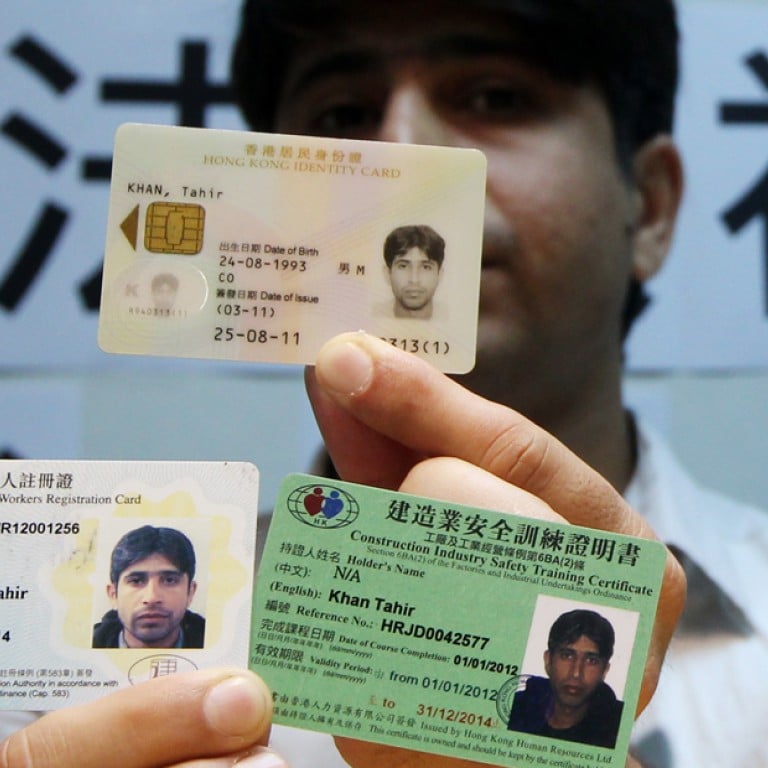
Hong Kong's ethnic minorities complain of racial profiling by police
Tsim Sha Tsui tailor Kamran Ryed says he doesn't want to go near Nathan Road any more. The Lahore-born tailor is sick of being stopped and frisked by police patrols on the bustling Kowloon thoroughfare popular with South Asian merchants.
Tsim Sha Tsui tailor Kamran Ryed says he doesn't want to go near Nathan Road any more.
The Lahore-born tailor is sick of being stopped and frisked by police patrols on the bustling Kowloon thoroughfare popular with South Asian merchants.
"I'm starting to hate them," the Hong Kong permanent resident of 10 years says of the patrols he claims have stopped him 10 times in the past month, carrying out body searches in public or asking him to empty his pockets.
Ryed, 43, says the stops are so frequent they have become a nuisance. And his local wife never gets checked, he adds.
"From my experience, ethnic minority residents tend to face more frequent ID checks," Annie Li Man, a campaign officer at Unison, which campaigns for ethnic-minority rights, says.
"It makes ethnic minorities feel discriminated against, which leads to distrust between them and the police. Those targeted may think twice before going to the police to report a crime."
The was unable to independently verify the racial profiling claims of Ryed and others. The Hong Kong police insist on-street checks and searches do not target specific groups of people, either by ethnic origin or social grouping.
A Unison survey last year found a wide discrepancy in how accepting Hongkongers were of different ethnic groups, with Pakistanis, Africans, Nepalese, Indians and Filipinos being less accepted than Europeans, Americans or Japanese people.
A straw poll of a dozen South Asian residents in Kowloon found that nine of them felt targeted by police checks.
"I feel insulted," says Tony Singh, an asylum seeker from the Punjab, who asked to be identified by an alias. "They search me like I'm a drug dealer or an illegal immigrant."
Singh, 31, says he is checked almost every day, sometimes more than once. Police check his bag, his pockets, and on one occasion, his underwear.
Sze Lai-shan, a community organiser with the Society for Community Organisation, says police checks also target mainland immigrants.
"If you don't look local, they will check you," says Sze, who has worked for 18 years to help migrants from the mainland integrate. "Women are more likely to be checked. They suspect they are prostitutes."
A survey the society conducted on 114 female mainland immigrants last year showed 21.7 per cent of them felt discriminated against by police.
Dr Barry Sautman, associate professor of social science at the University of Science and Technology and author of , says most people were unlikely to be aware of profiling in Hong Kong because they were not affected by it.
"[Racial profiling] makes it more difficult for people who are profiled to feel at home in Hong Kong," he says. "They have to conclude that Hong Kong people are suspicious of them."
The police argue that stop-and-search powers allow them to stay on top of what is happening on the streets, but criminal law experts are dubious.
"Stop and search is a terrible tool for detecting crime and targets ethnic minorities, making it a tool of oppression," says Professor Delores Jones-Brown, director of the Centre on Race, Crime and Justice at the City University of New York. "There's no way to know if it has a deterrent effect."

